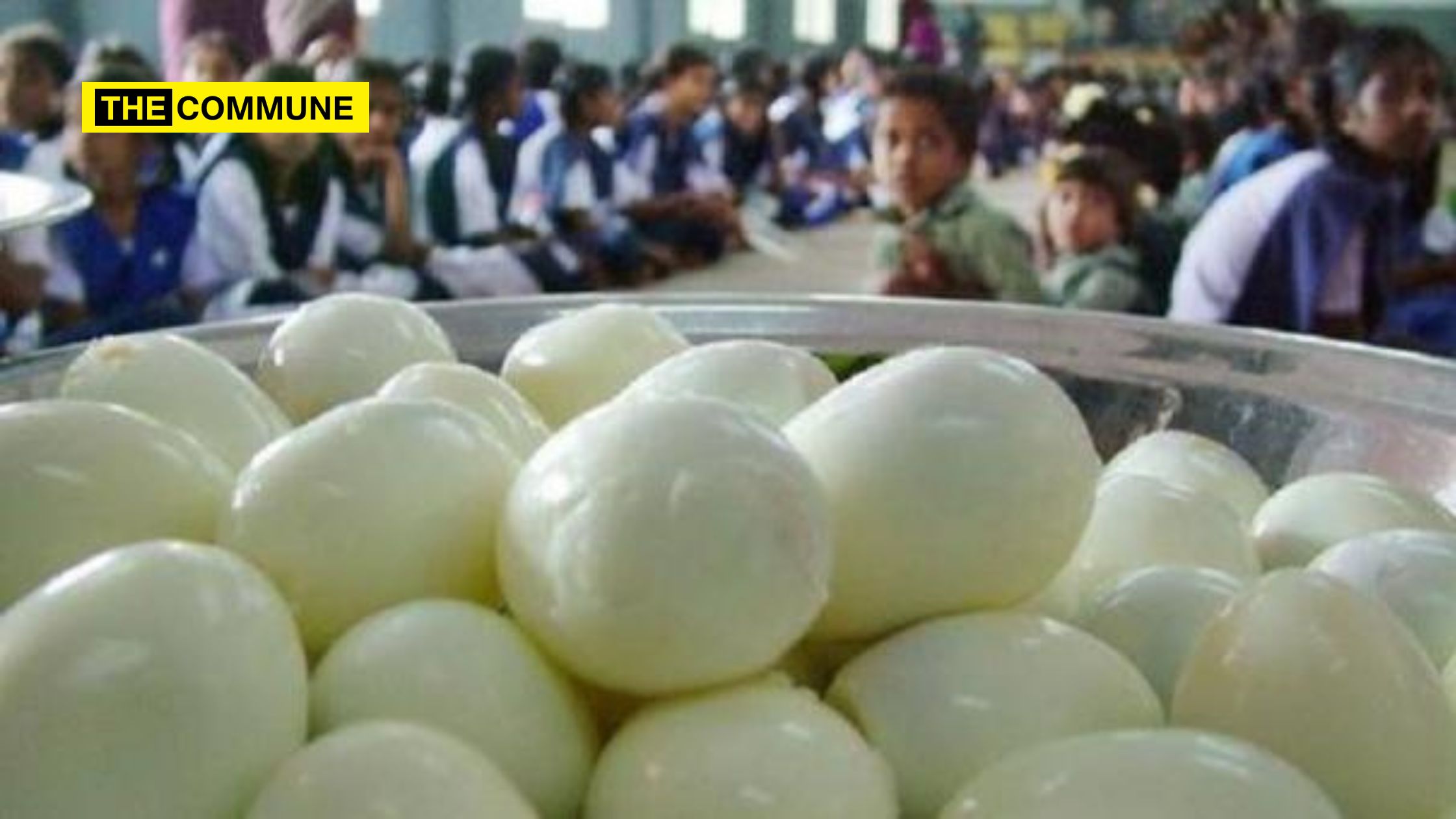
A massive egg procurement scam involving ₹301 crores has surfaced in Tamil Nadu, where allegations of corruption, underweight, and rotten eggs supplied to government and government-aided schools have raised serious concerns. This scandal, which has lasted over three years, stems from the nutritional egg program initiated by the Tamil Nadu Department of School Education, which supplies one boiled egg daily to students from Class 1 to Class 10. The Social Welfare Department manages the programme, which has come under scrutiny due to irregularities in the procurement process.
Egg Procurement Tender Worth ₹700 Crores
The supply of eggs to Tamil Nadu schools is conducted through an annual tender issued by the Social Welfare Department. The tender, valued at approximately ₹700 crores, has reportedly been monopolized by a few companies over the years, leading to severe allegations of malpractice. According to sources, the tender for 2024, floated in November 2023, was valued at ₹732 crores and involved the procurement of 126.2 crore eggs—32.24 crore more than the actual requirement, resulting in a loss of 187 crore rupees to the government.
Weight Loss And Rotten Eggs
Concerns about the quality of the eggs provided under this scheme are widespread. Eggs provided to students weigh less than 45 grams, fall below the market standard of 45-55 grams, and are purchased at prices higher than the market rate. Additionally, there have been instances of rotten eggs being supplied to schools. For instance, in December 2023, Erode Thamaraipallam Anganwadi Center reported receiving rotten eggs, and similar complaints have been filed in other districts such as Sivagangai and Virudhunagar.
Despite these complaints, no decisive action has been taken against the Social Welfare Department or the suppliers involved, leading to suspicions of rampant corruption within the procurement process.
RTI Revelations And Price Discrepancies
Yuvraj, an activist from Pollachi, obtained critical information regarding the egg procurement process through the Right to Information (RTI) Act. He pointed out significant price discrepancies between the market rate and the prices at which the government procured the eggs. For the 2022 tender, the government purchased eggs at ₹5.24 per egg in Zone 1, ₹5.23 in Zones 2 and 3, and ₹5.26 in Zone 4, despite the retail price being ₹4.38. This resulted in a loss of ₹96.80 crores over 220 working days.
For the 2023 tender, the government purchased eggs at ₹4.76 per egg while the market rate was ₹4.10, causing a further loss of ₹72.60 crores rupees. The 2024 tender, finalized in October 2023, saw eggs being purchased at ₹5.80 per egg, despite the market price being ₹4.60, leading to another ₹132 crores being embezzled.
Monopoly And Alleged Corruption
The companies responsible for the procurement, including Natural Food Commercials Pvt Ltd, Kisan Economics Pvt Ltd, and Gayathri Poultry Farm, have repeatedly won tenders. These firms are reportedly linked to Christie & Co., a company accused of corruption during the previous ADMK regime. Allegations suggest that despite promises made by Chief Minister M.K. Stalin during the 2021 assembly elections to investigate the egg procurement scandal, no substantial action has been taken.
Social activist Chandran from Namakkal Rasipuram criticized the role of the National Egg Coordination Committee (NEC), which sets the egg prices. He argued that this process has allowed for manipulation in the pricing and procurement process. In 2017, the Competition Commission of India intervened, acknowledging issues in the egg price-fixing process, but efforts to bring the case to the Supreme Court were unsuccessful.
Claims of Transparency from the Social Welfare Department
In response to the growing outcry, Social Welfare Minister Geetha Jeevan defended the department’s actions, claiming that all tenders were conducted transparently and that efforts were made to avoid monopolies. She also noted that companies supplying underweight eggs would be barred from future tenders. However, critics argue that Christie & Co.’s subsidiaries continue to win major contracts, leading to concerns about continued corruption.
Minister Jeevan further claimed that procuring additional eggs was based on previous requirements and that measures were taken to diversify the companies involved in the tender process. However, these explanations have done little to assuage public concerns about the scale of the fraud.
Escalating Prices As Tender Approaches
As the 2025 tender is set to open, the price of eggs has already begun rising. In September 2023, the price of eggs increased from ₹4.70 to ₹5.05 in anticipation of the upcoming tender. Activists warn that the price could go up to ₹6 per egg as the tender date approaches, further exacerbating the financial burden on the government and raising the spectre of additional corruption.
The Tamil Nadu egg procurement scandal has highlighted widespread corruption, with over ₹301 crore rupees embezzled over the last three years. Allegations of underweight and rotten eggs being supplied to schools have raised serious concerns about the welfare of children dependent on this nutrition program. As activists call for greater accountability, all eyes are on the government to see whether Chief Minister Stalin will take decisive action to investigate and address these deep-rooted issues in the procurement process.
குழந்தைகளுக்கு சத்துணவு முட்டை வாங்குவதில் 301 கோடி ஊழலா?
நம் #RTIExpose ஜூனியர் விகடனில் pic.twitter.com/aPXJI38yEX
— Yuvaraj Ramalingam (@YuvarajPollachi) September 25, 2024
Subscribe to our Telegram, WhatsApp, and Instagram channels and get the best stories of the day delivered to you personally.




